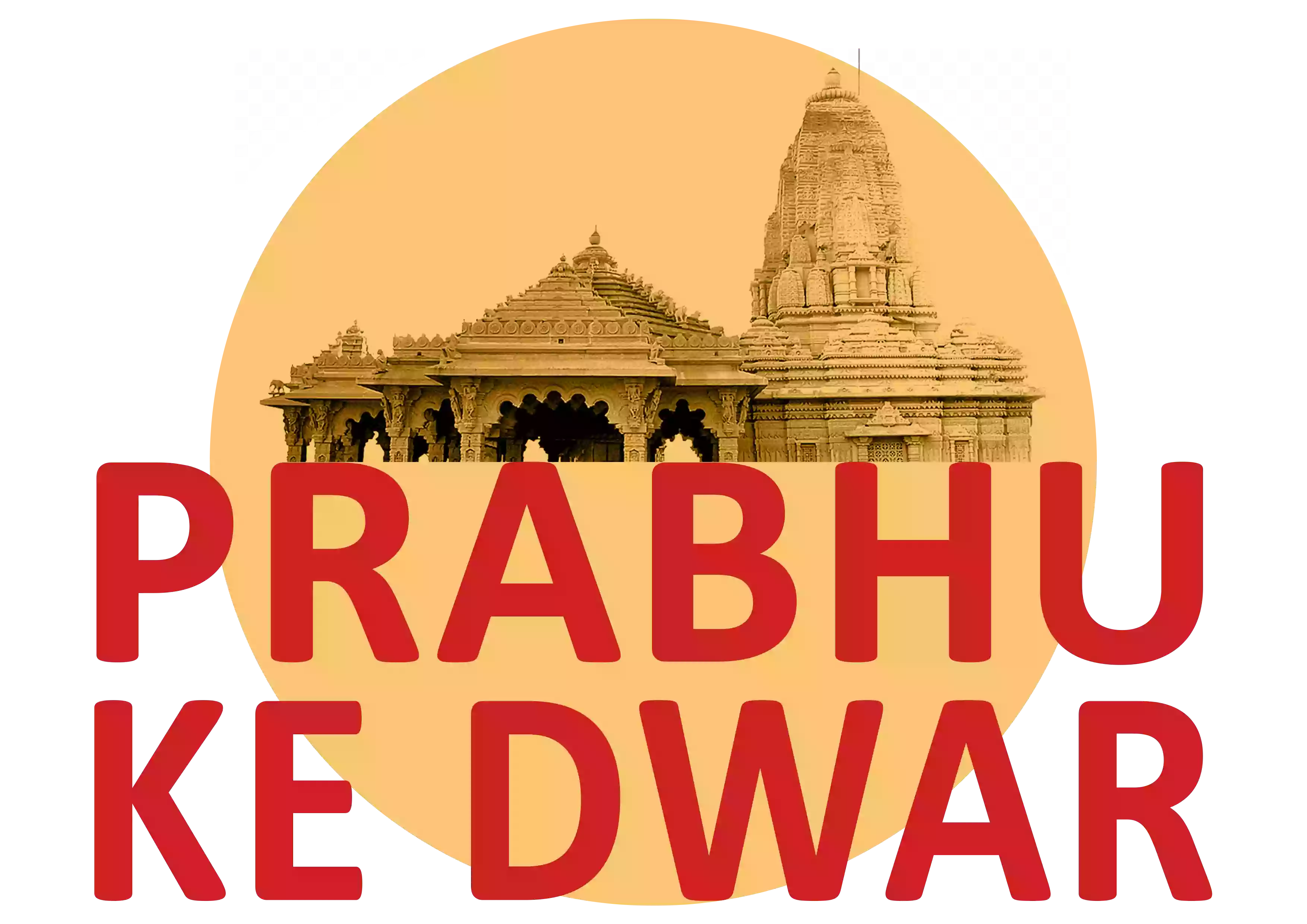In the vast ocean of Hindu spiritual literature, few hymns shine as brilliantly as the Vishnu Sahasranama Stotra. As a pandit deeply rooted in the ancient traditions of Sanātana Dharma, I invite you on a spiritual journey to explore the meanings of this sacred hymn in both Hindi and English. This stotra, composed of a thousand names of Lord Vishṇu, is not only a poetic tribute to the Divine but also a powerful tool for meditation and self-realization.
Table of contents [Show]
Historical and Spiritual Background
The Vishnu Sahasranama finds its home in the Anushasanika Parva of the Mahābhārata, where the great Bhīṣma, on his bed of arrows, imparted this divine knowledge to Yudhiṣṭhira. The thousand names are a concise encapsulation of Lord Vishṇu’s countless attributes—each name offering a glimpse into His infinite nature. In simple Hindi, we say:
"विष्णु सहस्रनाम में भगवान विष्णु के 1000 नाम हैं, जो उनके गुण, शक्तियाँ और अनंत महिमा को दर्शाते हैं।"
(Translation: “The Vishṇu Sahasranama contains 1000 names of Lord Vishṇu, which reflect His qualities, powers, and infinite glory.”)
This hymn, recited with utmost devotion, is believed to cleanse the mind, uplift the soul, and even bestow material as well as spiritual prosperity. Its power lies not only in the recitation but in meditating upon the meanings behind each name.
Structure and Language of the Stotra
The stotra is composed in Sanskrit—a language regarded as the language of the gods. Its meter, the Anuṣṭup, lends a rhythmic cadence that aids in meditation and memorization. Each of the 1000 names encapsulates a distinct quality of Lord Vishṇu, such as His omnipresence, omnipotence, and eternal nature. For instance, names like “Viśvaṁ” (विश्वम्) imply that He is the Universe itself, while “Avyaya” (अव्यय) reminds us of His imperishable nature.
In Hindi, we might explain:
"हर नाम भगवान विष्णु की एक विशेषता को दर्शाता है, जैसे कि 'विश्वम्' का मतलब है सम्पूर्ण ब्रह्मांड, और 'अव्यय' का अर्थ है जो कभी नष्ट न हो।"
(Translation: “Each name of Lord Vishṇu represents a unique attribute—for example, 'Viśvaṁ' means the entire universe, and 'Avyaya' means that which is imperishable.”)
The dual-language approach—understanding both the Sanskrit and its Hindi translation—helps devotees connect with the stotra on a deeper level. When one recites these names, the phonetic vibrations, combined with their intrinsic meanings, create an atmosphere of divine grace and inner peace.
Delving into the Meanings
Let us consider a few examples to understand how the names work as spiritual signposts:
Viśvaṁ (विश्वम्)
- English Meaning: The Universe; signifying that Lord Vishṇu pervades all existence.
- Hindi Explanation: "विश्वम्" का अर्थ है सम्पूर्ण ब्रह्मांड, जो दर्शाता है कि भगवान विष्णु हर जीव और निर्जीव में विद्यमान हैं।
Avyaya (अव्यय)
- English Meaning: Imperishable or unchanging, a reminder of the eternal nature of the Divine.
- Hindi Explanation: "अव्यय" का मतलब है वह जो कभी नष्ट नहीं होता, यह भगवान के अनंत और स्थायी स्वरूप को दर्शाता है।
Sahasra (सहस्र)
- English Meaning: Thousand, symbolizing the countless ways in which the Divine manifests.
- Hindi Explanation: "सहस्र" शब्द का अर्थ है हजार, जो बताता है कि भगवान विष्णु के गुण अनगिनत हैं।
Nama (नाम)
- English Meaning: Name; in this context, each divine epithet is a channel through which devotees may experience and invoke the Divine presence.
- Hindi Explanation: "नाम" का मतलब है नाम, और हर एक नाम के माध्यम से हम भगवान के विभिन्न रूपों और गुणों का अनुभव कर सकते हैं।
The beauty of the Vishṇu Sahasranama lies in its layered meanings. While the literal translations offer one level of understanding, the deeper philosophical interpretations reveal that these names serve as meditation aids. Each recitation helps cleanse the mind and align one’s inner energies with the cosmic rhythm.
The Benefits of Reciting the Sahasranama
It is said that the regular recitation of the Vishṇu Sahasranama not only purifies the soul but also bestows tangible benefits in one’s life. In our ancient scriptures, the phala-śruti (verses on the fruits of recitation) proclaim that those who chant these names with pure devotion will be freed from sins, overcome all obstacles, and eventually attain Moksha (liberation).
In Hindi, we express this benefit as:
"जो भक्त नियमित रूप से विष्णु सहस्रनाम का जप करते हैं, उन्हें न केवल आध्यात्मिक शांति मिलती है, बल्कि वे सांसारिक सुख, ज्ञान और मोक्ष भी प्राप्त करते हैं।"
(Translation: “Devotees who regularly chant the Vishṇu Sahasranama attain not only spiritual peace but also worldly prosperity, knowledge, and liberation.”)
This hymn acts as a spiritual elixir, soothing the mind and fortifying one’s resolve. In a world where stress and material distractions are abundant, such divine recitations remind us to focus on our higher purpose. The repetition of these names creates vibrations that harmonize the body and mind, paving the way for a state of inner bliss.
Personal Reflections on the Divine
I have personally witnessed the transformative power of the Vishṇu Sahasranama. In my early years of study, I would recite the stotra daily, often during the early hours of the morning. As the sun rose, its gentle light seemed to merge with the divine radiance of the names, instilling a profound sense of calm and clarity within my heart.
In Hindi, I share:
"जब मैंने प्रतिदिन विष्णु सहस्रनाम का जप करना शुरू किया, तो मैंने अपने मन में एक अद्भुत शांति और स्पष्टता का अनुभव किया। यह अनुभव मुझे यह समझाने में मदद करता है कि भगवान के नाम सिर्फ शब्द नहीं हैं, बल्कि एक अद्भुत ऊर्जा हैं जो हमारे जीवन को बदल सकती है।"
(Translation: “When I began reciting the Vishṇu Sahasranama daily, I experienced an incredible peace and clarity in my mind. This experience helped me understand that the names of God are not mere words, but a wondrous energy that can transform our lives.”)
Over time, the stotra has become a refuge in times of distress and a source of immense strength during life’s challenges. Whether one is facing personal loss, health issues, or financial difficulties, chanting these divine names is said to bring relief and restore balance.
Embracing the Eternal Wisdom
The Vishṇu Sahasranama is more than just a hymn; it is an invitation to perceive the Divine in all aspects of life. Its recitation is a practice that integrates body, speech, and mind, aligning us with the eternal rhythm of the cosmos. In the ancient wisdom of our forefathers, the stotra is seen as a direct path to self-realization and spiritual enlightenment.
In Hindi, we affirm:
"यह सहस्रनाम हमें यह याद दिलाता है कि भगवान विष्णु हमारे अंदर भी वास करते हैं। जब हम इनके नाम का जप करते हैं, तो हम अपने अंदर की दिव्यता को जगाते हैं और मोक्ष के मार्ग पर अग्रसर होते हैं।"
(Translation: “This Sahasranama reminds us that Lord Vishṇu also resides within us. When we chant His names, we awaken the divine spark within and move steadily towards liberation.”)
The dual interpretation—both in Hindi and English—ensures that devotees from all linguistic backgrounds can access this treasure of knowledge. The stotra bridges the gap between ancient Sanskrit wisdom and modern understanding, offering a timeless guide to living a life of purpose and devotion.
Conclusion
The Vishṇu Sahasranama Stotra stands as a beacon of divine light in our lives. Through its thousand names, Lord Vishṇu reveals His infinite qualities, inviting us to partake in His eternal grace. Whether you recite the stotra in Hindi, English, or the original Sanskrit, the transformative power of these divine names remains the same. They cleanse the mind, uplift the spirit, and guide us on the path of righteousness and self-realization.
As you embark on your spiritual journey, I encourage you to immerse yourself in the meanings of these names. Let each recitation remind you of the boundless love and mercy of the Divine, and may it lead you to a state of inner peace and liberation.
Vishnu Sahasranama Stotra is not merely a collection of words but a living, breathing manifestation of the Supreme. Embrace its teachings with devotion and let your heart resonate with its eternal rhythm.




